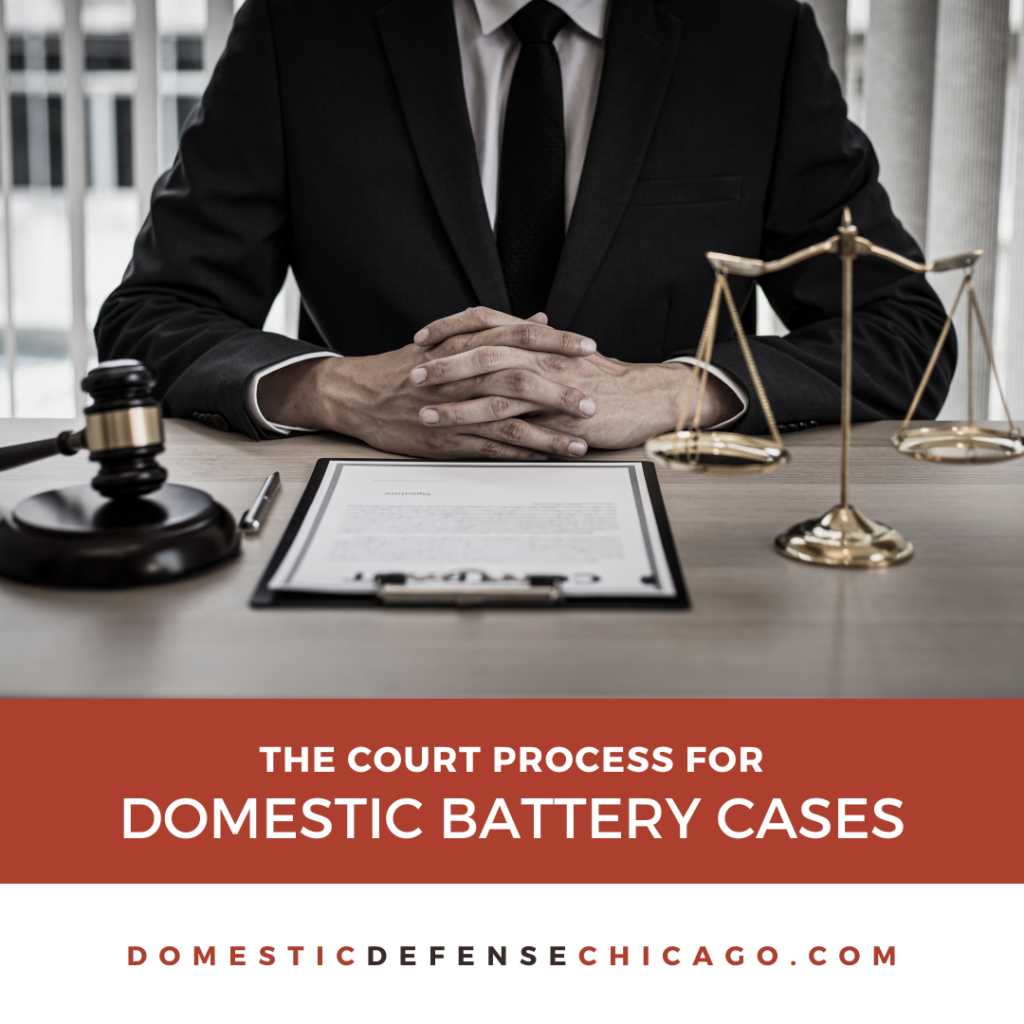Being charged with domestic battery in Illinois is a serious matter that requires a clear understanding of the legal process. Knowing what to expect can help you navigate the system and work toward the best possible resolution for your case. This guide outlines the court process, from the initial arrest to potential outcomes, and highlights the importance of working with a domestic battery defense lawyer.
The Court Process for Domestic Battery Cases in Illinois
This guide explains the following:
- The initial arrest and charges
- Bail and pre-trial hearings
- Preparing for your trial
- What happens during the trial
- Sentencing and post-trial options
Here’s a closer look at each.
The Initial Arrest and Charges
The process begins with your arrest following allegations of domestic battery. Law enforcement may take you into custody if they believe there is probable cause that an incident occurred. After your arrest, you will be formally charged with domestic battery under Illinois law. These charges may range from a misdemeanor to a felony, depending on factors like prior convictions or whether the incident involved aggravating factors such as strangulation.
After the arrest, you will likely be given a court date for your arraignment. It’s essential to refrain from making any statements to police without consulting an attorney. Anything you say can be used against you in court, so exercising your right to remain silent is critical.
Bail and Pre-Trial Hearings
After your arrest, the court may set bail, allowing you to secure your release while awaiting trial. The bail amount depends on the severity of the charges, your criminal history, and whether you pose a flight risk. In some cases, the court may impose additional conditions, such as electronic monitoring or no-contact orders.
During pre-trial hearings, the prosecution and defense will present motions and evidence. Your attorney may file motions to suppress evidence, dismiss charges, or request modifications to bail conditions. These hearings play a vital role in shaping your defense strategy.
Preparing for Your Trial
Preparation is key to a strong defense. Your attorney will work with you to review all evidence, identify witnesses, and develop a legal strategy tailored to your case. This process includes:
- Gathering evidence, such as communication records or surveillance footage
- Interviewing witnesses who can support your version of events
- Analyzing the prosecution’s evidence for inconsistencies or weaknesses
Your attorney will also prepare you for what to expect during the trial, including how to present yourself in court and respond to questioning.
What Happens During the Trial
The trial itself involves several stages, beginning with jury selection if your case is being heard by a jury. Once the trial starts, both sides will present opening statements, followed by the prosecution’s case. The prosecution will introduce evidence and call witnesses to testify against you.
Your defense attorney will have the opportunity to cross-examine witnesses, challenge the evidence, and present your case. This may include calling witnesses on your behalf or introducing evidence that supports your defense. After closing arguments, the judge or jury will deliberate and deliver a verdict.
Sentencing and Post-Trial Options
If you are found guilty, the court will schedule a sentencing hearing. Sentencing for domestic battery can include jail time, fines, probation, or mandatory counseling programs. The severity of the sentence depends on the specific circumstances of your case, including whether you have prior convictions or if the incident involved aggravating factors.
If you are found not guilty, the charges will be dismissed, and the case will conclude. However, if you are convicted, your attorney can discuss potential post-trial options, such as filing an appeal or seeking a reduced sentence.
Understanding the court process for domestic battery cases is essential to protecting your rights and preparing for each stage. By working with a knowledgeable attorney, you can navigate the complexities of the legal system and focus on building a strong defense that addresses the unique aspects of your case.
Do You Need to Talk to an Attorney About Domestic Battery Defense?
If you need to talk to a domestic battery defense attorney in Illinois, we’re here to help. Call us at 847-920-4540 now – we’ll be happy to give you a free consultation and talk to you about your options.







Leave A Comment
You must be logged in to post a comment.